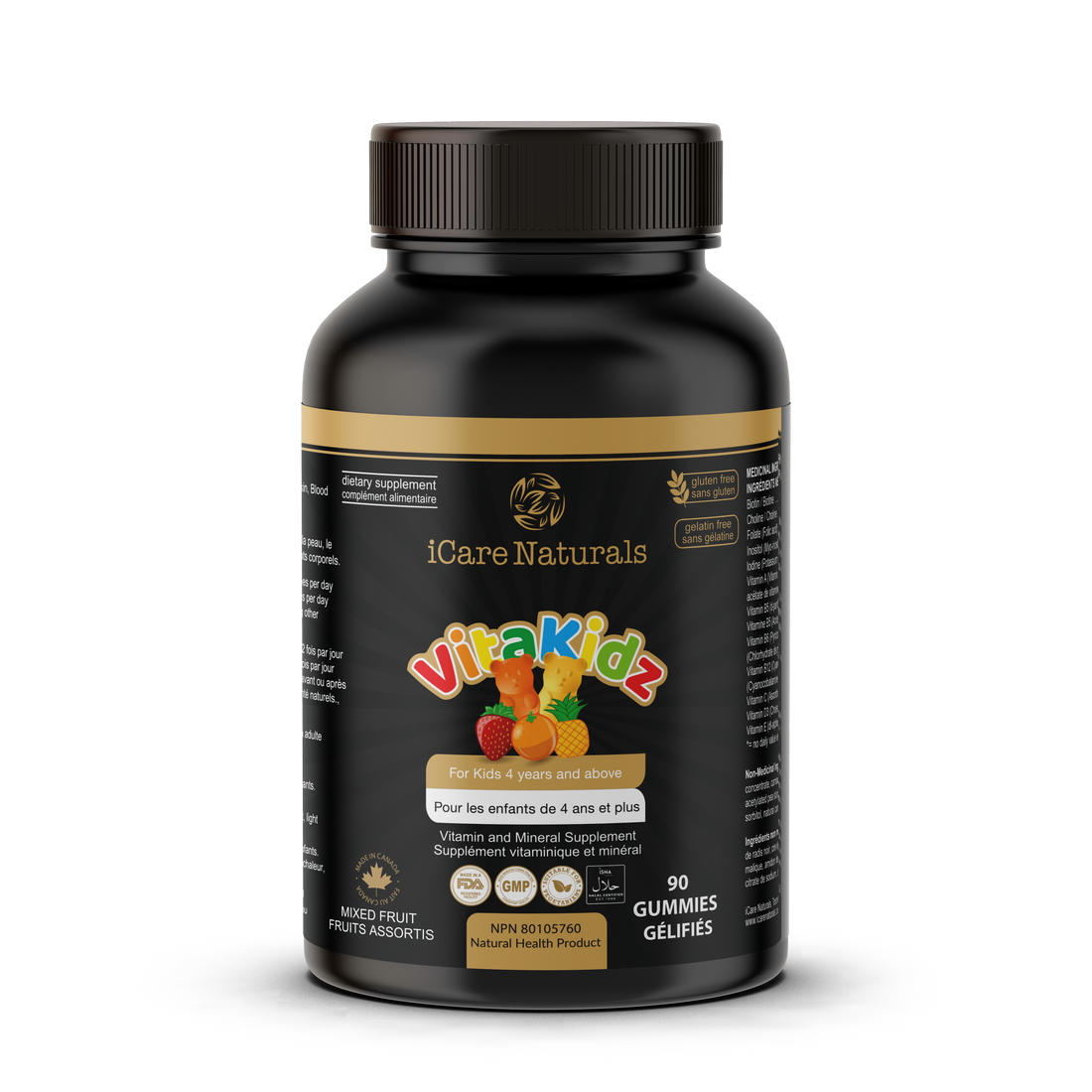Starting your toddler on a multivitamin can be a great way to ensure they are getting all the essential vitamins and minerals they need for optimal growth and development. However, it can be difficult to know when the right time to start is. Factors to consider include your child's diet, whether they have any specific nutritional deficiencies, and any health conditions they may have. Additionally, it is important to talk to your paediatrician or a healthcare professional before starting your child on a multivitamin, as they can give personalised advice based on your child's unique needs. With the right approach and guidance, starting your toddler on a multivitamin can be a simple and effective way to support their overall health and well-being.
The Need for Multivitamins in Toddlers
Toddlers are at a crucial stage in their development and require proper nutrition to support their growth and development. Multivitamins can provide essential nutrients that may be missing from a toddler's diet, such as iron, calcium, and vitamin D. They can also help prevent deficiencies that can lead to serious health problems. Regularly incorporating multivitamins into a toddler's diet can give parents peace of mind that their child is getting the necessary nutrients for optimal growth and development.

Before Age Two
Toddlers before the age of two are at a critical stage of development and require a variety of essential vitamins and minerals to support growth and overall health. Multivitamins are a convenient and easy way to ensure that toddlers receive the recommended daily intake of these essential nutrients. They can also help prevent deficiencies that can lead to serious health issues. It is important for parents to consult with a paediatrician before starting their child on a multivitamin supplement to ensure it is appropriate for their specific needs.
After Age Two
Toddlers after age two require multivitamins to support their growing bodies and minds. These essential nutrients help in maintaining healthy bones, teeth, skin, eyes, and hair. They also support the immune system, which helps to prevent illness and infections. Additionally, multivitamins can also aid in the development of cognitive and motor skills. It is important to ensure that your toddler is getting the necessary vitamins and minerals to support their growth and development. A daily multivitamin can help ensure that they are getting the proper nutrition.
Overdose of Multivitamins in Toddlers
An overdose of multivitamins in toddlers can cause a variety of symptoms such as stomach pain, nausea, vomiting, and diarrhoea. In severe cases, it can also lead to serious health problems such as organ damage. It is important for parents to be aware of the recommended daily dosage for their child and to avoid giving them more than what is recommended. Parents should also be cautious when giving their child supplements, as some may have ingredients that are not safe for children. Consultation with a paediatrician is recommended before giving any kind of supplements to the little ones.

When to Add Supplements?
Adding supplements to your toddler's diet should be done with caution and under the guidance of a paediatrician or healthcare professional. They can be beneficial for children who have specific nutrient deficiencies or health conditions, but should not replace a balanced diet. It is important to consider your child's age, growth and development, and individual needs before adding any supplements to their diet. It is always recommended to consult with a paediatrician before starting your toddler on any supplements, as some may have negative side effects or interact with other medications.
What Supplements Should be Added?
When it comes to adding supplements to your diet, it is important to first consult with a healthcare professional to ensure they are safe and appropriate for your individual needs. Some popular supplements that may be beneficial for overall health include omega-3 fatty acids for heart health, probiotics for gut health, and vitamin D for bone health. Additionally, individuals who may be deficient in specific nutrients such as iron or calcium may need to supplement with those specific vitamins or minerals. Ultimately, the best supplements to add will depend on your personal health needs and goals.
Multivitamins are Not Necessary for Healthy Growing Babies
Multivitamins are not necessary for healthy growing babies. Breastmilk and formula provide all the necessary nutrients for infants and young children. Additionally, as babies begin to eat solid foods, they can also get the vitamins and minerals they need from a varied diet. Consultation with a paediatrician is recommended for specific advice about the child's nutritional needs. The use of multivitamins may not have any benefits and may even cause harm if taken in excessive amounts.
In conclusion, starting multivitamins in toddlers can be a great way to ensure that they are getting all the nutrients they need for healthy growth and development. However, it is important to consult with a paediatrician before starting any supplements. Ideally, multivitamins should be started around the age of 2-3, when a child's diet becomes less varied and they may be at risk of deficiency. It is also important to choose a reputable brand and ensure that the dosage is appropriate for your child's age and weight. By following these guidelines, parents can feel confident that their child is getting the essential nutrients they need for optimal health and development.










